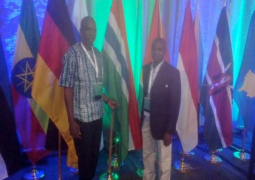It felt like a rain of mercy and blessing on souls and hearts that were anxious to receive it. Those who fail to grasp the profound causes of events attributed the swift progress and diffusion of Islam to mere chance. In fact, none of the major events of the world can be attributed to chance, and this is especially true of the emergence of the founder of an ethical, philosophical and legal system. Can it have been a matter of pure accident that the spark of such a phenomenon should have appeared but once in the history of Arabia, without anything similar occurring there ever again.
If certain sociological factors caused the emergence in Arabia of such a vast movement, why should another hero comparable to the Prophet not have arisen in the same area, because of the same factors? Why should this one particular event stand forth from all others, as a unique and self-contained instance? If a revolutionary movement occurs in a given society as the product of certain social conditions, it is impossible that it should happen suddenly, without any precedent or connection to prior developments.
On the contrary, it is like a wave that gradually expands, until the conditions become fully ripe for the emergence of a leader. When propagating his message, the Prophet of Islam did not represent the latest in a chain of ideological movements such as occur in every society. No groundwork had been laid, in the environment where he grew up, for the lofty concepts, values and ideas that he presented nor did any foundation exist on which he might have built.
The revolutionary wave of Islam derived its force exclusively from the being of the Prophet; it came without any preliminary. It was a question of the revolutionary movement, comprising the Companions of the Prophet, serving as a nucleus around which the message grew; on the contrary, that movement was itself an extension of the person of the Prophet. The movement was a part of his person; his person was not part of the movement. From this point of view, the revolutionary movement of the Prophet of Islam is utterly different from all other movements in history. In Islam, we encounter a comprehensive, all-embracing movement that concerns itself with all aspects of life, for it represents a profound revolution in all human values and concepts. The teachings of Islam shook the very foundations of tribal society, and so vast and lofty was the Islamic ideal that it conceived the idea of a world society, bringing together all human beings under the banner of monotheism. It is useful to hear these facts as others have expounded them. Nehru, for example, the well-known Indian statesman, writes as follows: “It is strange that this Arab race, which for long ages had lived a sleepy existence, apparently cut off from what was happening elsewhere, should suddenly wake up and show such tremendous energy as to startle and upset the world.
The story of the Arabs, and of how they spread rapidly over Asia, Europe and Africa, and of the high culture and civilization which they developed, is one of the wonders of history. “Islam was the new force or idea which woke up the Arabs and filled them with self-confidence and energy. This was a religion started by a new Prophet, Muhammad. Within seven years of the flight, Muhammad returned to Mecca as its master. Even before this he sent out from Medina a summon to the kings and rulers of the world to acknowledge the one God and his Prophet. Heraclius, the Constantinople Emperor, got it while he was still engaged in his campaign against the Persians in Syria; the Persian king got it; and it is said that even Tai-Tsung got it in China.
They must have wondered, these kings and rulers, who this unknown person was who dared to command them! From the sending of these messages we can form some idea of the supreme confidence in himself and his mission which Muhammad must have had. And this confidence and faith he manage to give to this people, and with this to inspire and console them, this desert people of no great consequence managed to conquer half the known world. “Confidence and faith in themselves was a great thing. Islam also gave them a message of brotherhood of the equality of all those who were Muslims. A measure of democracy was thus placed before the people. Compared to the corrupt Christianity of the day, this message of brotherhood must have had a great appeal, not only for the Arabs, but also for the inhabitants of many countries where they went.” This profound and amazing transformation in human history was originated with one man acting entirely alone. He had no material resources at his command, had never engaged in scientific or technical study, and had never even taken anything from the learning of others.
This cannot be regarded as natural or normal occurrence; it is, on the contrary, eloquent testimony to the super-human capacities of that outstanding personality. Were his enemies in Arabia not to have engaged him in internal wars, he would have summoned other peoples to Islam more swiftly and energetically. But the unrelenting attacks of his enemies compelled him to devote the major part of his time and resources to the defense of Islam.
AN ANSWER TO THE OPPONENTS OF ISLAM
Opponents of Islam make the criticism that Islam relied on military force in order to secure its progress. However, we see that the Prophet never initiated hostilities against any group or people, whether it be the Jews or the Quraysh or the Byzantines. History bears witness that all the wars waged by the Most Noble Messenger, upon whom be peace and blessings, were defensive in nature: the purpose was always to respond to the attacks of the enemy, with the exception of certain cases where the Muslim were convinced that the enemy would persist in its aggressiveness and treachery and were correspondingly ordered to take the initiative in defending themselves. In the following verses from the Quran, the initial reason for legislating jihad-i.e., responding to the attacks of an aggressive enemy is clearly laid forth: “Permission is given to the warriors of Islam to fight against their enemies, for they have suffered oppression at their hands. God is able to aid them, and they are people who have been expelled from their homeland without due reason. Their crime was this, that they said, “God is our Lord.” (22:39-40) “Fight in the way of God against those who do battle with you, but be careful not to transgress the bounds, for God loves not the transgressors.” (2:190) “If they break their oath after concluding a treaty and vilify your religion, fight against the leaders of the unbelievers, for they observe no pledge or treaty; only then may they cease their violations.” (9:12). Were the Muslims carrying weapons at the very dawn of Islam when the polytheists began turning to Islam in droves? Did the Muslims start a war in order to diffuse and propagate the religion of God? Everyone knows that in the very beginning, far from attacking any group or nation, the Muslims were themselves the victims of aggression
To be continued
Read Other Articles In Article (Archive)




